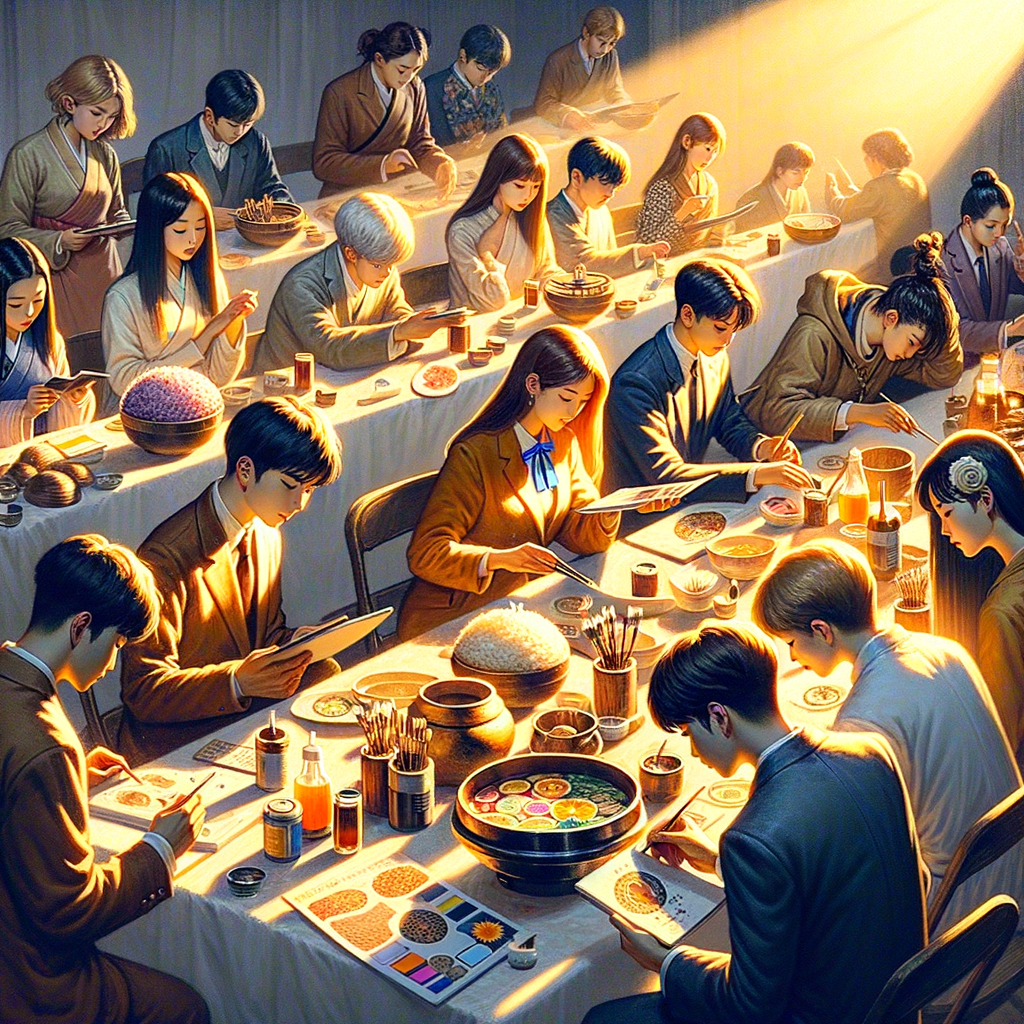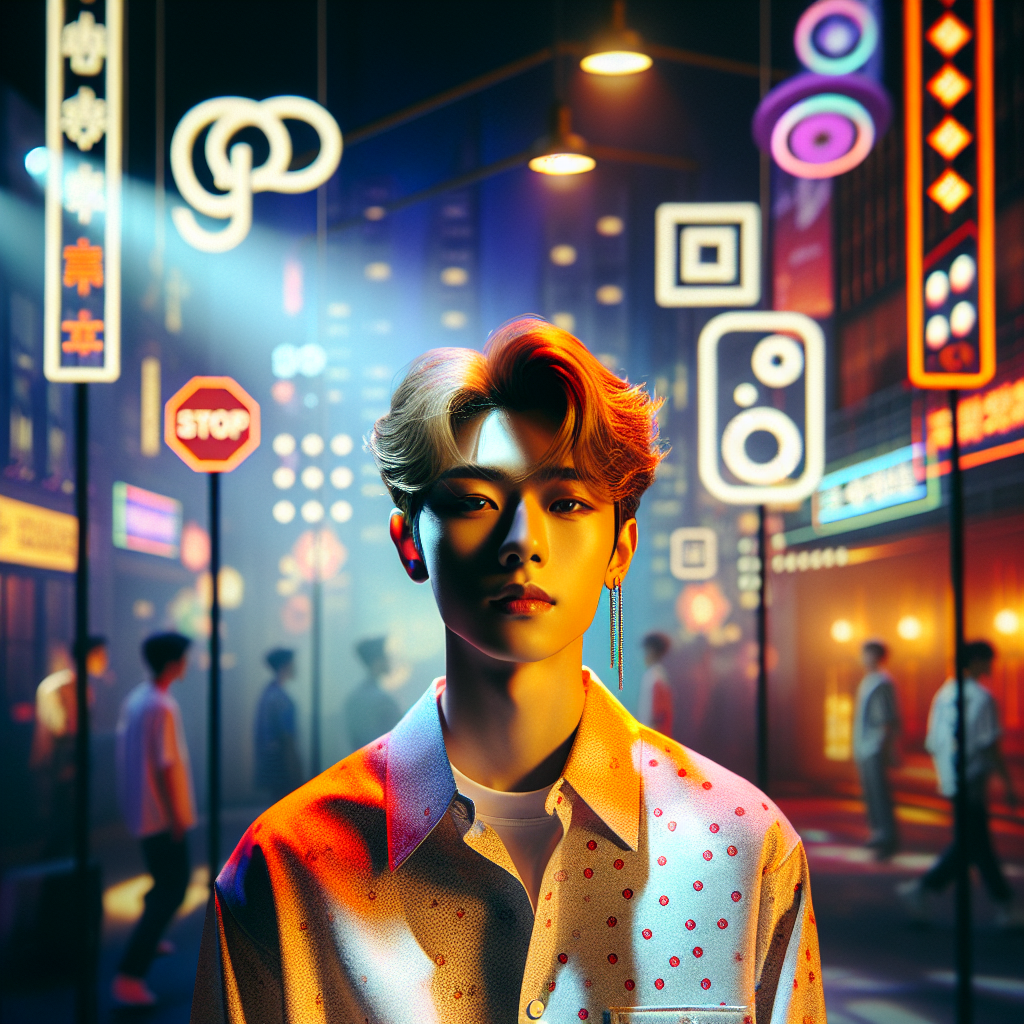-
Table of Contents
PlaylistSound’s suggestions
“Discover the Heartbeat of a Global Phenomenon.”
Introduction
Kpop Culture Unveiled: Beyond the Music delves into the vibrant and multifaceted world of Korean pop culture, exploring its global impact and the intricate ecosystem that extends far beyond catchy tunes and dynamic performances. This exploration reveals the cultural, social, and economic forces that have propelled Kpop to international prominence, examining the role of fandoms, the influence of social media, and the meticulous training systems that shape idols. By uncovering the layers of fashion, beauty, and lifestyle trends that accompany the music, this narrative provides a comprehensive understanding of how Kpop has become a cultural phenomenon that transcends borders and resonates with diverse audiences worldwide.
The Evolution Of Kpop Fashion: From Stage Outfits To Global Trends

Kpop culture has taken the world by storm, and while the music is undeniably catchy, there’s another element that has captivated fans globally: the fashion. The evolution of Kpop fashion is a fascinating journey, one that has transformed from stage outfits to global trends, influencing wardrobes far beyond South Korea. As someone who has been following Kpop for years, I’ve seen firsthand how these fashion trends have evolved and seeped into everyday style.
In the early days of Kpop, fashion was all about making a statement on stage. Outfits were often bold, colorful, and sometimes even outrageous, designed to capture the audience’s attention and complement the high-energy performances. Think of the flashy ensembles of groups like H.O.T. and Seo Taiji and Boys in the 1990s. These outfits were not just about looking good; they were an integral part of the performance, adding an extra layer of excitement and flair.
As Kpop continued to grow, so did its fashion. The 2000s saw a shift towards more polished and coordinated looks, with groups like TVXQ and Girls’ Generation setting trends with their sleek, stylish outfits. This era marked the beginning of Kpop fashion’s influence beyond the stage, as fans began to emulate their favorite idols’ styles in their everyday lives. It was no longer just about the music; it was about embodying the entire Kpop aesthetic.
Fast forward to today, and Kpop fashion has become a global phenomenon. It’s not just fans who are taking notice; designers and fashion houses around the world are drawing inspiration from Kpop’s unique style. The influence is evident in the way Kpop idols are now regulars at international fashion weeks, sitting front row at shows for brands like Chanel, Gucci, and Louis Vuitton. Their presence at these events is a testament to how Kpop fashion has transcended its origins, becoming a significant player in the global fashion scene.
One of the most exciting aspects of Kpop fashion is its diversity. Each group and artist brings their own unique style to the table, from the edgy, streetwear-inspired looks of BTS to the elegant, high-fashion ensembles of BLACKPINK. This diversity allows fans to find inspiration that resonates with their personal style, making Kpop fashion accessible to a wide audience. It’s this inclusivity that has helped Kpop fashion become a global trendsetter.
Moreover, Kpop fashion is not just about the clothes; it’s about the attitude and confidence that come with wearing them. Kpop idols are known for their bold fashion choices, often pushing the boundaries of traditional style norms. This fearless approach to fashion encourages fans to experiment with their own looks, fostering a sense of creativity and self-expression.
In conclusion, the evolution of Kpop fashion from stage outfits to global trends is a testament to the genre’s far-reaching influence. It’s a journey that has seen Kpop idols transform from performers to fashion icons, shaping trends and inspiring fans worldwide. As Kpop continues to grow, there’s no doubt that its fashion will continue to evolve, bringing new and exciting styles to the forefront. Whether you’re a die-hard fan or just someone who appreciates good fashion, there’s something undeniably captivating about the world of Kpop fashion.
Kpop Fandoms: The Power And Influence Of Dedicated Fan Communities
Kpop culture is a fascinating phenomenon that has taken the world by storm, and at the heart of this global sensation are the dedicated fan communities that breathe life into it. These fandoms, often referred to as “stans,” are not just passive listeners; they are active participants who play a crucial role in shaping the Kpop landscape. As someone who has been swept up in the vibrant world of Kpop, I’ve come to realize that these fan communities are a force to be reckoned with, wielding power and influence that extend far beyond the music itself.
One of the most striking aspects of Kpop fandoms is their sheer dedication. Fans, often organized into groups with catchy names like ARMY for BTS or BLINK for BLACKPINK, are known for their unwavering support of their favorite idols. This dedication manifests in various ways, from streaming music videos to boost view counts, to organizing fan projects that celebrate their idols’ achievements. It’s not uncommon to see fans pooling their resources to buy billboards in Times Square or even donating to charities in the name of their favorite artists. This level of commitment is truly remarkable and speaks volumes about the deep connection fans feel with their idols.
Moreover, Kpop fandoms are incredibly organized and resourceful. They have mastered the art of social media, using platforms like Twitter, Instagram, and TikTok to mobilize and spread their message. Hashtags trend worldwide within minutes, and fan accounts with thousands of followers keep everyone updated on the latest news and events. This digital prowess allows fans to amplify their voices and ensure that their idols receive the recognition they deserve. It’s a testament to the power of community and how, when united by a common passion, people can achieve incredible things.
In addition to their organizational skills, Kpop fans are also known for their creativity. Fan art, fan fiction, and dance covers are just a few examples of how fans express their love for Kpop. These creative endeavors not only showcase the talents of the fans themselves but also contribute to the overall Kpop culture. It’s a beautiful cycle where the music inspires the fans, and in turn, the fans inspire each other and even the artists they admire. This symbiotic relationship is one of the many reasons why Kpop continues to thrive and evolve.
However, it’s important to acknowledge that the power of Kpop fandoms can sometimes have a darker side. The intense loyalty and passion can lead to fan wars, where different fandoms clash over perceived slights or competition. These conflicts can become heated and, at times, toxic, overshadowing the positive aspects of the community. It’s a reminder that while fandoms can be a source of joy and camaraderie, they also require a level of responsibility and respect for others.
In conclusion, Kpop fandoms are a dynamic and influential force that extends far beyond the music. Their dedication, organization, and creativity have helped propel Kpop to global heights, making it a cultural phenomenon that continues to captivate audiences worldwide. As someone who has witnessed the power of these communities firsthand, I can attest to the fact that Kpop is not just about catchy tunes and flashy performances; it’s about the people who come together to celebrate and support something they love. And in that sense, Kpop fandoms are truly something special.
Behind The Scenes: The Rigorous Training And Lifestyle Of Kpop Idols
When you think of Kpop, the first things that might come to mind are catchy tunes, vibrant music videos, and impeccably choreographed dance routines. But behind the glitz and glamour lies a world that is both fascinating and intense, a world where aspiring idols undergo rigorous training and lead lifestyles that are far from ordinary. Having had the chance to peek behind the curtain, I can tell you that the journey to becoming a Kpop idol is as demanding as it is rewarding.
Imagine being a teenager with dreams of stardom, stepping into a training program that could last anywhere from a few years to nearly a decade. These young hopefuls, often referred to as trainees, are selected through highly competitive auditions. Once they make it in, their lives are transformed into a whirlwind of singing, dancing, language lessons, and even media training. It’s like attending a high-pressure school where the curriculum is designed to mold you into a multi-talented performer.
The daily routine of a Kpop trainee is nothing short of grueling. Picture waking up early in the morning and heading straight to the practice room, where you spend hours perfecting dance moves and vocal techniques. It’s not uncommon for trainees to practice for 12 to 15 hours a day, sometimes even more as they get closer to debut. The physical demands are intense, and the mental pressure is equally challenging. Yet, despite the exhaustion, there’s a palpable sense of camaraderie among the trainees. They share the same dreams and struggles, forming bonds that often last a lifetime.
Moreover, the lifestyle of a Kpop trainee extends beyond just training. Companies often impose strict rules regarding diet, appearance, and personal conduct. Maintaining a certain image is crucial, and this means adhering to specific beauty standards and sometimes even undergoing cosmetic procedures. The pressure to look perfect can be overwhelming, but it’s considered part of the package in an industry where visuals are as important as talent.
As if that weren’t enough, trainees also have to navigate the complexities of public perception. Social media plays a huge role in the Kpop world, and trainees are often encouraged to build a presence online. This means they must be mindful of everything they post, knowing that fans and critics alike are watching. It’s a delicate balance between being authentic and maintaining the polished image that the industry demands.
Despite these challenges, the allure of becoming a Kpop idol remains strong. The chance to perform on stage, connect with fans worldwide, and be part of a cultural phenomenon is a dream worth chasing for many. And when trainees finally debut, the sense of accomplishment is unparalleled. They’ve not only honed their skills but also developed resilience and discipline that will serve them well in their careers.
In conclusion, while the path to becoming a Kpop idol is fraught with challenges, it’s also a journey filled with growth and self-discovery. The rigorous training and lifestyle may seem daunting, but for those who persevere, the rewards are immense. It’s a testament to the dedication and passion that fuels the Kpop industry, making it a captivating world that continues to enchant fans across the globe.
Cultural Impact: How Kpop Is Shaping Global Perceptions Of South Korea
Kpop has taken the world by storm, and it’s not just about catchy tunes and synchronized dance moves. It’s a cultural phenomenon that’s reshaping how people perceive South Korea on a global scale. When I first stumbled upon Kpop, I was drawn in by the vibrant music videos and the infectious energy of the performers. But as I delved deeper, I realized that Kpop is much more than just music; it’s a gateway to understanding and appreciating South Korean culture.
One of the most fascinating aspects of Kpop is how it serves as a cultural ambassador for South Korea. Through the global reach of Kpop, people from all corners of the world are getting a taste of Korean language, fashion, and even cuisine. It’s amazing how a single music video can spark an interest in learning Korean or trying out kimchi for the first time. This cultural exchange is not just one-sided; it encourages a dialogue between fans and the culture they are so eager to explore.
Moreover, Kpop has played a significant role in breaking down stereotypes and misconceptions about South Korea. Before the Kpop wave, many people had limited knowledge about the country, often associating it with outdated stereotypes. However, the rise of Kpop has painted a new picture of South Korea as a vibrant, modern, and innovative nation. The meticulous production quality of Kpop music videos and the cutting-edge fashion showcased by idols have contributed to this fresh perspective. It’s like seeing South Korea through a new lens, one that’s colorful and full of life.
In addition to changing perceptions, Kpop has also fostered a sense of community among fans worldwide. It’s incredible to see how people from different backgrounds come together, united by their love for Kpop. This sense of belonging transcends geographical boundaries, creating a global family that shares not only a passion for music but also an appreciation for Korean culture. Fans often engage in activities that promote cultural understanding, such as participating in Korean language classes or attending cultural festivals. This collective enthusiasm has undoubtedly contributed to a more nuanced understanding of South Korea and its people.
Furthermore, Kpop’s influence extends beyond cultural appreciation; it has also impacted the global entertainment industry. The success of Kpop groups like BTS and BLACKPINK has opened doors for other non-Western artists, challenging the dominance of Western pop culture. This shift has encouraged a more diverse and inclusive music scene, where different cultures can be celebrated and appreciated. It’s refreshing to see how Kpop has paved the way for a more globalized music industry, where talent knows no borders.
In conclusion, Kpop is much more than a musical genre; it’s a cultural force that’s reshaping global perceptions of South Korea. Through its infectious music, captivating visuals, and the sense of community it fosters, Kpop has introduced the world to the richness of Korean culture. It’s a testament to the power of music as a universal language, capable of bridging cultural gaps and bringing people together. As Kpop continues to evolve and grow, it will undoubtedly keep playing a pivotal role in shaping how the world views South Korea, one catchy tune at a time.
Q&A
1. **Question:** What are some key elements that contribute to the global appeal of K-pop culture beyond the music itself?
**Answer:** Key elements include highly synchronized and visually captivating choreography, fashion-forward styling, engaging music videos, and the use of social media platforms for fan interaction and global reach.
2. **Question:** How do K-pop idols maintain a strong connection with their fanbase?
**Answer:** K-pop idols maintain a strong connection with their fanbase through regular social media updates, fan meetings, live streaming events, and personalized content that fosters a sense of community and belonging among fans.
3. **Question:** What role does the Korean entertainment industry play in shaping K-pop culture?
**Answer:** The Korean entertainment industry plays a crucial role by investing in rigorous training programs for idols, producing high-quality music and visuals, and strategically marketing groups to appeal to both domestic and international audiences.
4. **Question:** How has K-pop influenced global fashion trends?
**Answer:** K-pop has influenced global fashion trends by popularizing unique and eclectic styles, often seen in music videos and performances, which blend traditional Korean elements with contemporary fashion, leading to collaborations with international fashion brands and designers.K-pop culture, beyond its infectious music and dynamic performances, represents a multifaceted global phenomenon that intertwines music, fashion, technology, and social media. It has transcended cultural boundaries, creating a unique global community that celebrates diversity and innovation. The genre’s success is not only attributed to its catchy tunes and polished visuals but also to its ability to engage fans through interactive platforms and storytelling. K-pop idols serve as cultural ambassadors, influencing global trends and fostering cross-cultural exchanges. Ultimately, K-pop’s impact extends beyond entertainment, shaping contemporary culture and redefining the global music industry landscape.




